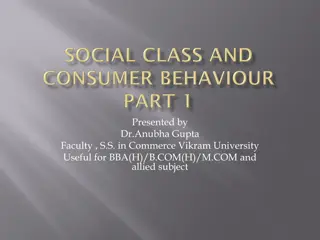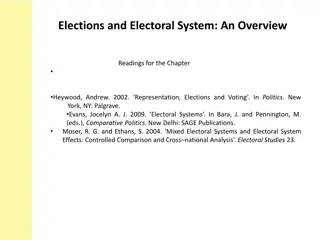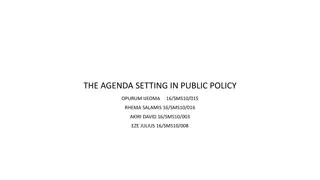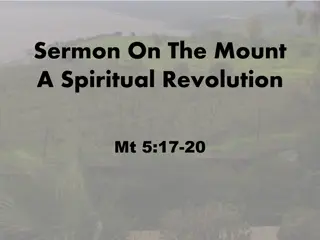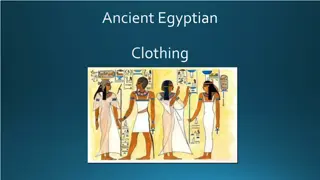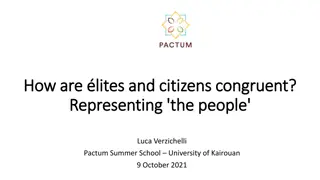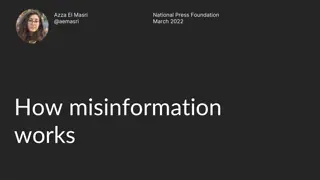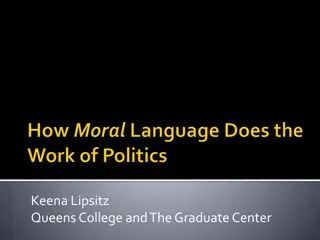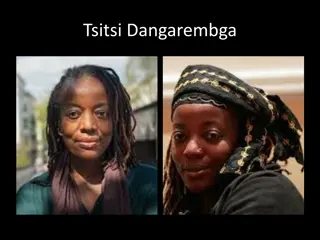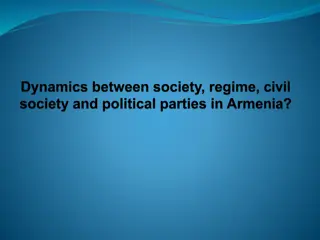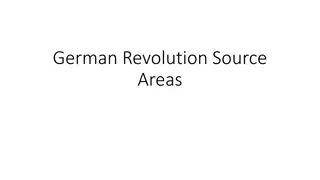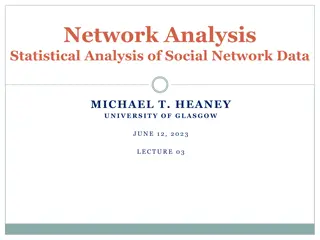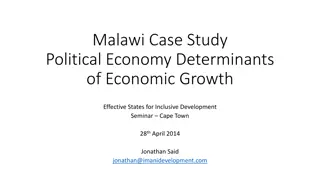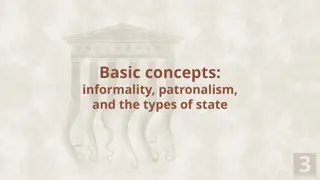Global Concerns: Climate Change, Inequality, and Influence on Government
Climate change and inequality are identified as top global concerns, with a link to government influence and favoritism highlighted. The connection between people's worries worldwide showcases a concerning asymmetrical influence that relates to issues like waste in government spending and vested int
4 views • 22 slides
Understanding Social Class and Consumer Behavior
Explore the concept of social class and its impact on consumer behavior across different socioeconomic groups. From subjective to objective measurements, learn how lifestyle choices vary between upper class elites, high-level professionals, and the middle class. Discover how social class influences
0 views • 11 slides
Threats to National Sovereignty in a Globalised World
National sovereignty faces threats in a globalised world due to factors like nationalism, westernisation, foreign ownership of companies, and disunity within nations. Issues such as challenges to national identity, consequences of disunity, and inequality caused by globalisation impact the stability
0 views • 4 slides
Understanding Elections and Electoral Systems
Elections and Electoral Systems play a crucial role in modern representative governments, influencing governance, policy-making, and the relationship between the electorate and political elites. The concept of representation, theories of voting, and different electoral systems such as Plurality Majo
2 views • 18 slides
Understanding Agenda Setting in Public Policy
Agenda setting is a crucial process in public policy where issues and potential solutions compete for attention both from the public and elites. It involves the prioritization of problems and ideas that are brought to the forefront of governmental agendas. Agendas exist at various levels of governme
0 views • 16 slides
Sermon on the Mount: A Spiritual Revolution - Insights and Lessons
Exploring the Sermon on the Mount from Matthew 5, this content delves into the revolutionary teachings of Jesus, contrasting religious practices, challenging cultural beliefs, and emphasizing the characteristics of the blessed. It highlights the call for righteousness surpassing that of religious el
0 views • 9 slides
Ancient Egyptian Clothing: Linen, Jewelry, and Fashion Trends
Ancient Egyptians wore linen clothing to combat the hot desert climate, with wealthy individuals adorning themselves with gemstone jewelry. Fashion-conscious elites followed trends influenced by royal and other civilizations, while slaves and children had distinct attire practices. The clothing styl
0 views • 6 slides
Understanding the Congruence between Elites and Citizens in Representation
The relationship between elites and citizens in representative democracy is explored, tracing historical antecedents, the marriage between representation and democracy, modern representation models, and the roles of representatives. Key themes include responsiveness, responsibility, formalistic, des
0 views • 9 slides
Understanding the Spread of Misinformation in Media and Politics
Misinformation in media and politics is fueled by identity-affirming discourse, where individuals seek out sources that align with their beliefs. Elites benefit from controlling these narratives, leading to lower trust in media and higher trust in government when in power. The spread of misinformati
1 views • 12 slides
Analysis of Moral Language in Political Communication
Explore how Republican and Democratic elites use distinctive moral language and its impact on voters in the context of the 2012 election data. Discover the application of Moral Foundations Theory in understanding political differences in the United States and how moral intuitions influence public op
0 views • 13 slides
Reflections on Colonialism and Cultural Domination
The texts by Jean-Paul Sartre and Frantz Fanon provide deep insights into the dynamics of colonialism and cultural imperialism. Sartre discusses the manipulation of native elites by European powers, while Fanon delves into the psychological impacts on colonized individuals. Both authors highlight ho
1 views • 14 slides
Main Actors Society and Regime Characteristics Analysis
Analysis reveals a society characterized by passivity, apathy, and patron-client relationships, with emigration as a major form of social protest. The regime exhibits consolidating authoritarianism, convergence of business and political elites, and systemic corruption. Oligarchic dominance, small an
0 views • 6 slides
German Revolution of 1918: Source Areas and Military Defeat
The German Revolution of 1918 saw a complex interplay of events, from military defeat to political maneuvers. The myth of the army being stabbed in the back, Ludendorff's attempts to shift blame, and the revolution from above orchestrated by elites all shaped this pivotal period in German history. D
0 views • 14 slides
Understanding Network Analysis: Whole Networks vs. Ego Networks
Explore the differences between Whole Networks and Ego Networks in social network analysis. Whole Networks provide comprehensive information about all nodes and links, enabling the computation of network-level statistics. On the other hand, Ego Networks focus on a sample of nodes, limiting the abili
0 views • 31 slides
Political Economy Determinants of Economic Growth: Malawi Case Study
Presenting findings from a seminar in Cape Town, this case study delves into Malawi's political dynamics impacting economic growth, historical evolution, growth acceleration, maintenance, and structural transformation. Analyzing the roles of institutions, political elites, and business in shaping gr
0 views • 35 slides
Understanding Informality and Patronalism in State Structures
Political regimes are shaped by informality and patronalism, impacting the dynamics between ruling elites and the state. Informality refers to unwritten social rules, while patronalism involves patron-client relationships in a hierarchical pyramid structure. These concepts influence state functionin
0 views • 17 slides

